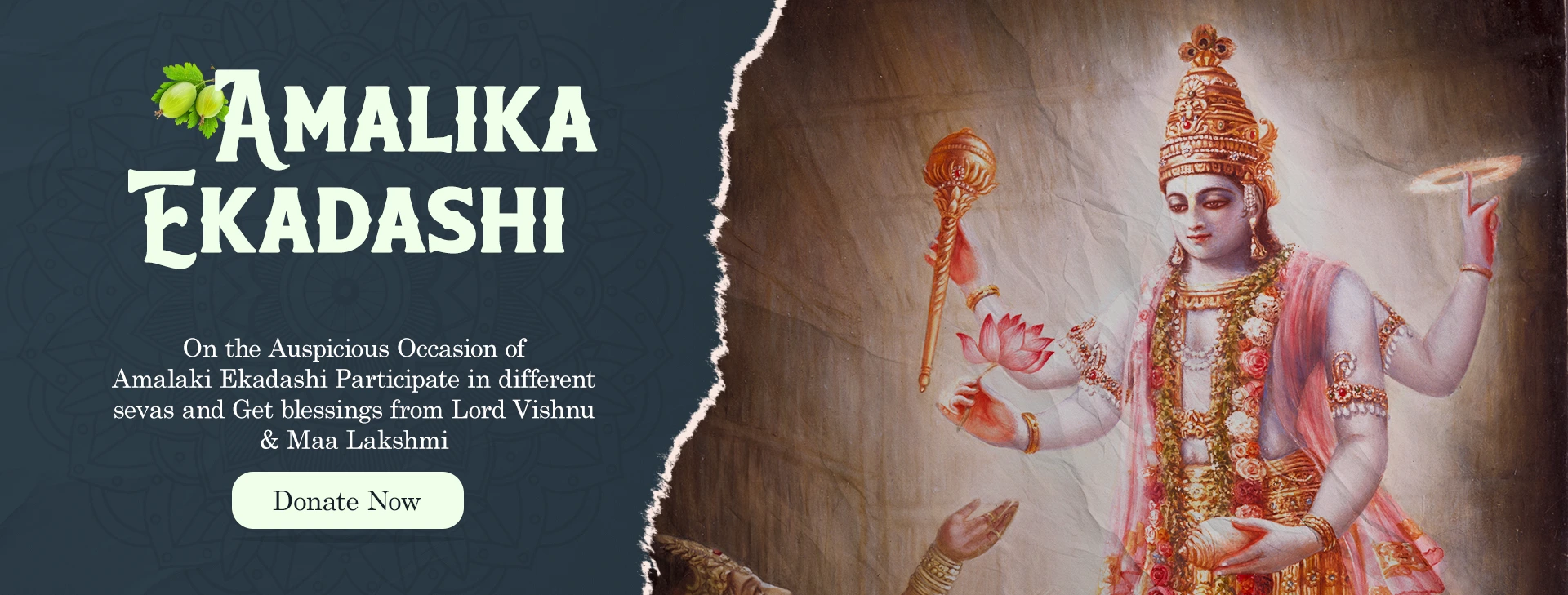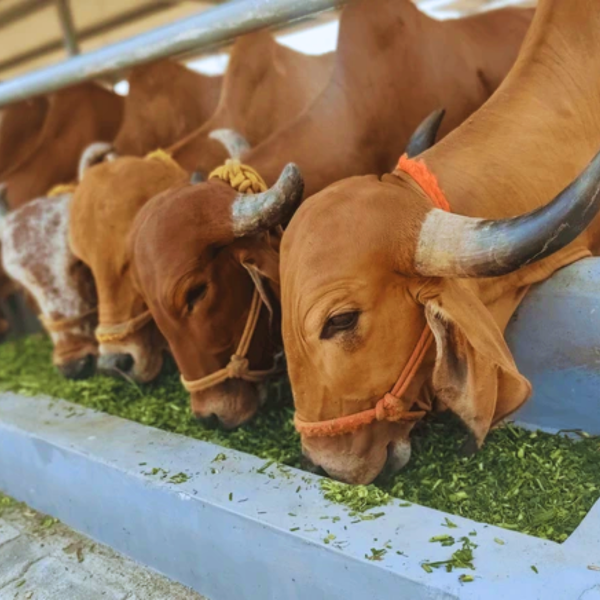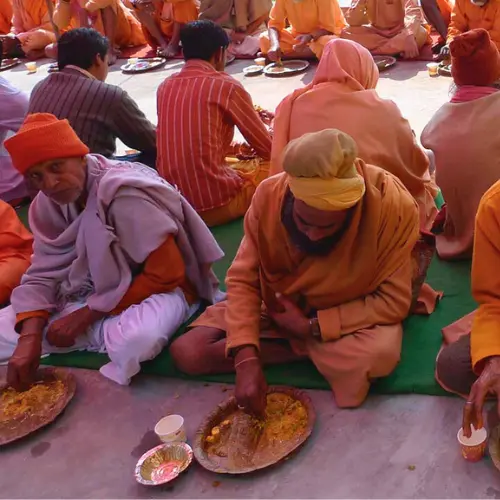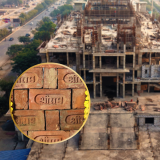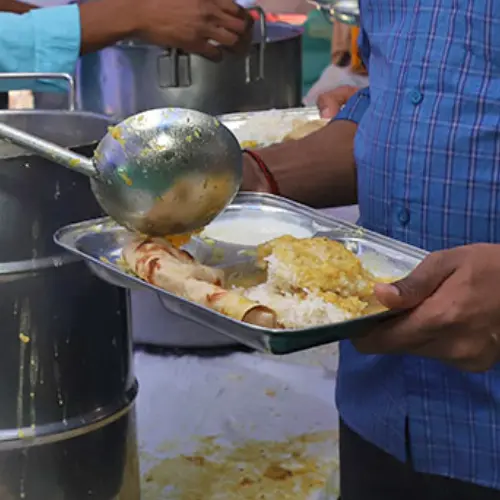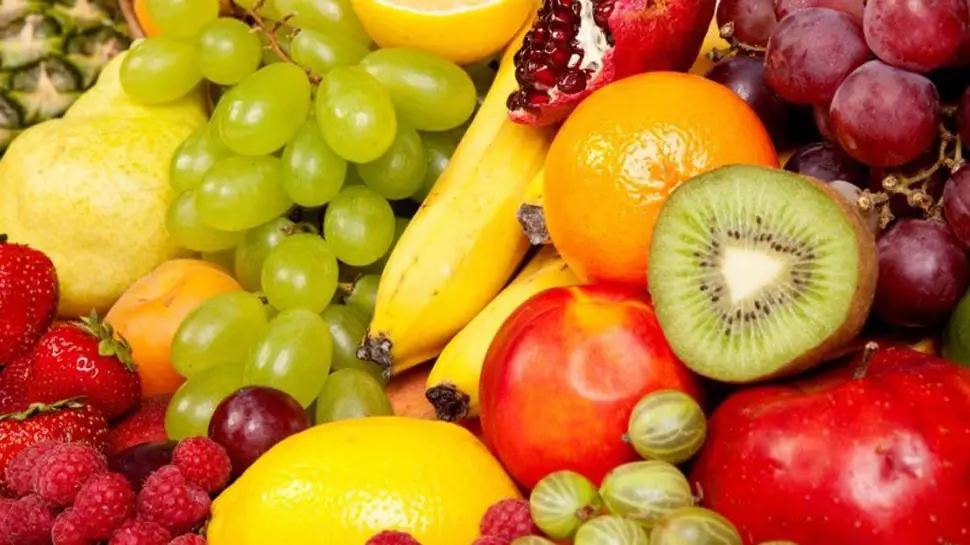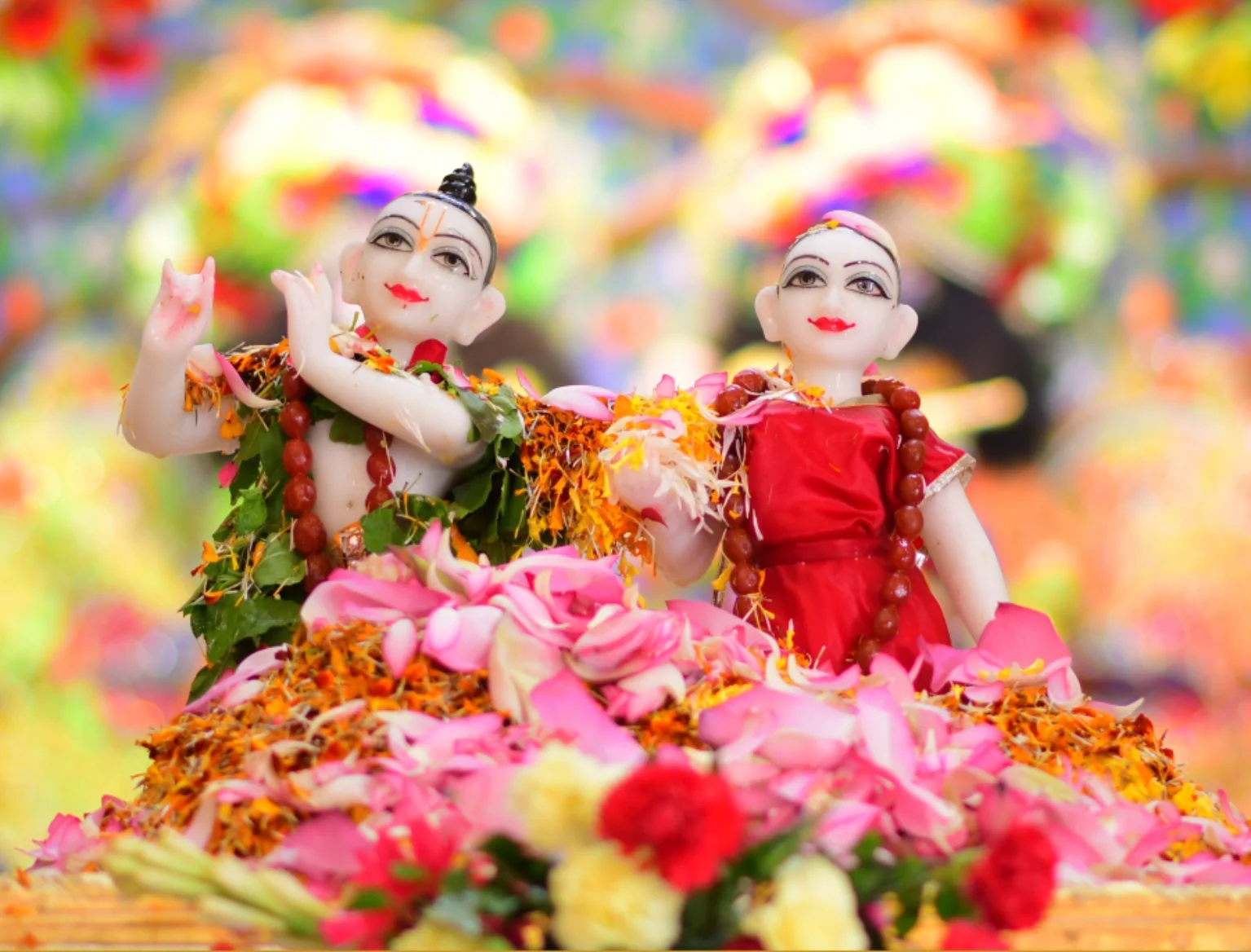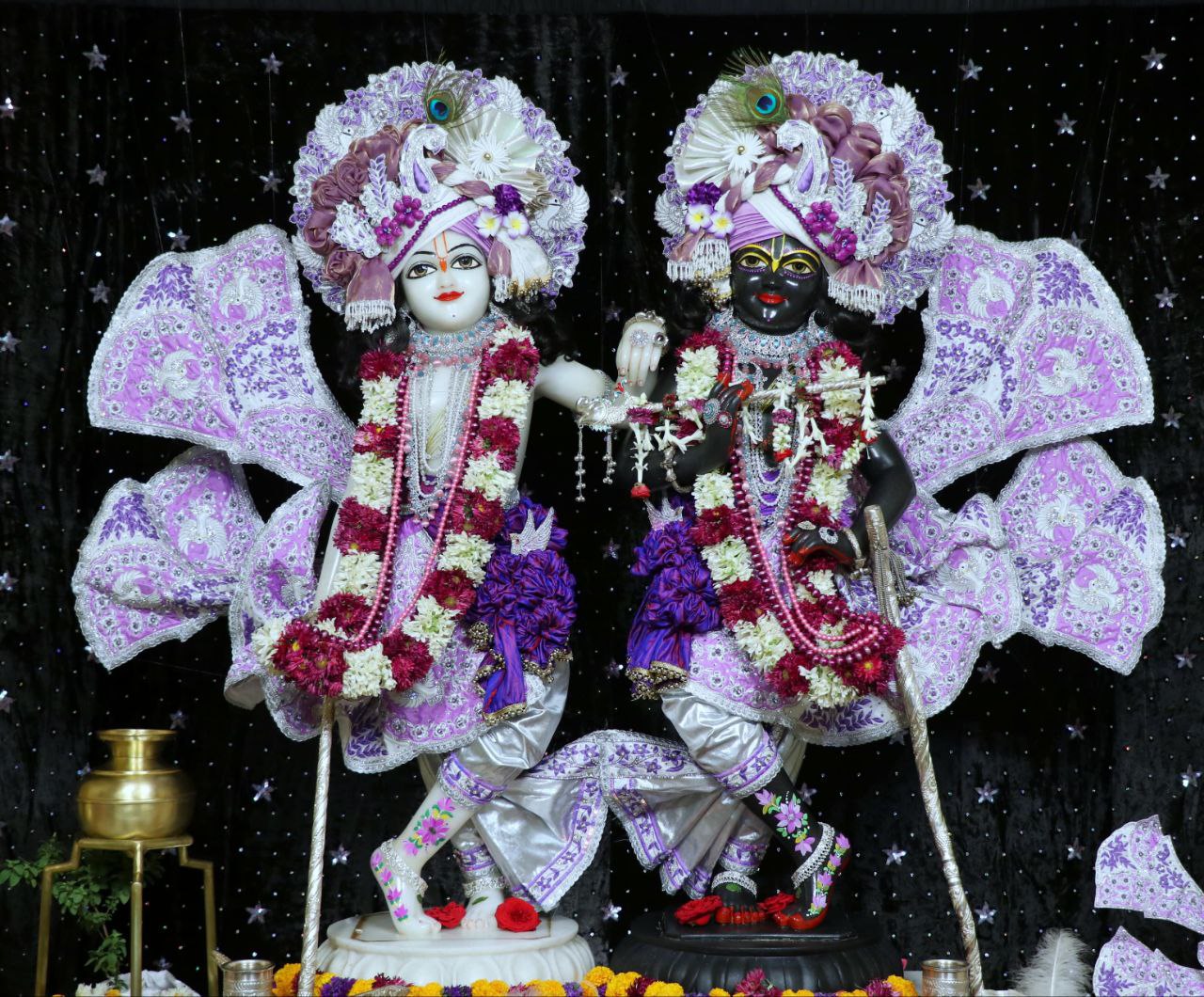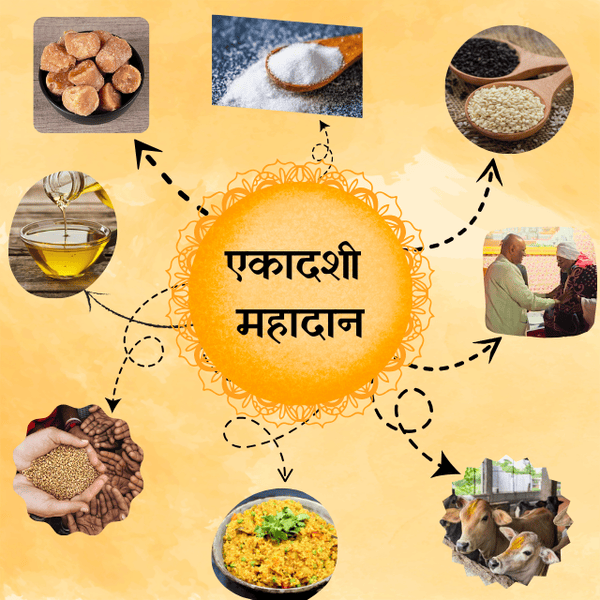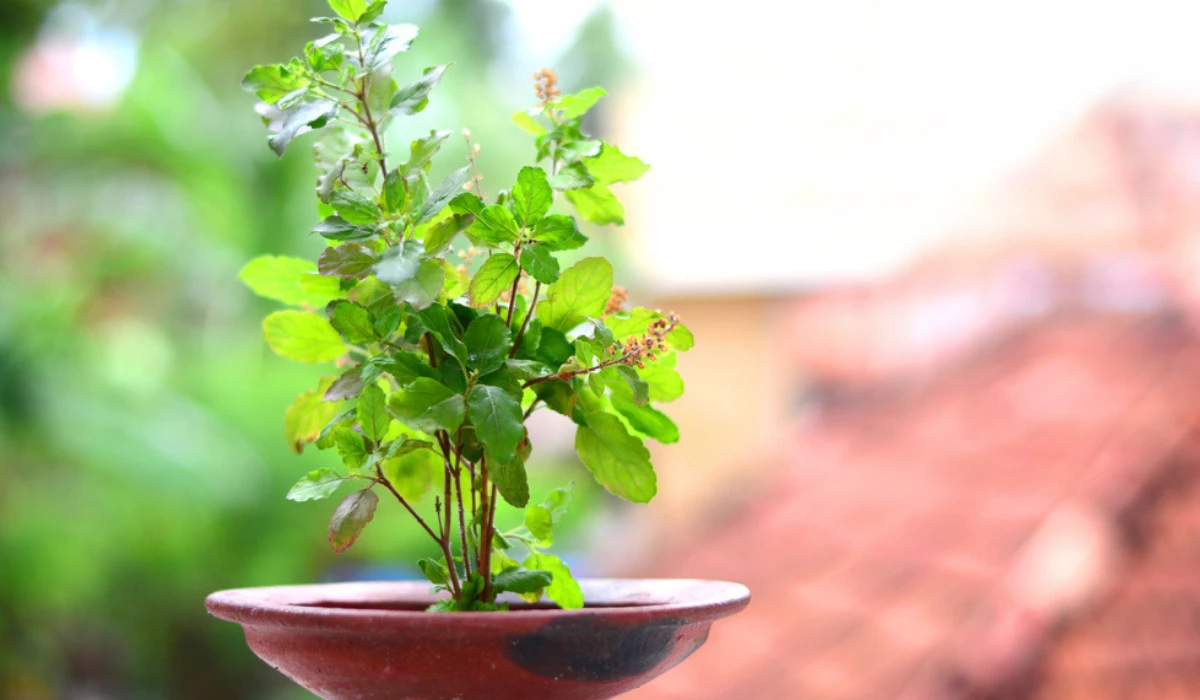Amalaki Ekadashi
Eliminate Obstacles with Donation on this Pure Amalaki Ekadashi
Receive Eternal Blessings of Lord Vishnu with your generous Support
Participate in the Divine Grace of Amalaki or Rangbhari Ekadashi by Generously Contributing to our Noble Endeavors. Your Donation serves as a Sacred Offering to Lord Vishnu, inviting His Blessings for Eternal Well-Being.
Offer your Seva and receive the blessings of Sri Radha Krishna
Ekadashi Daan Seva
Nirjala Ekadashi 2025, the Most Meritorious of All Days
Nirjala Ekadashi 2025: The Story, Its Importance, How to Celebrate It, and the Power of Giving
With the reference of the Brahma Vaivarta Purana:
Nirjala Ekadashi, which is also called Pandava Nirjala Ekadashi or Bhimaseni Ekadashi, is seen to be the most important of the twenty-four Ekadashis that are celebrated every year. It happens in the month of Jyestha during the Sukla Paksa (light fortnight), and careful adherence is considered to give all other Ekadashis the advantages of fasting. "Nirjala" means "without water," which shows how strict this fast is. From sunrise on Ekadashi to sunrise on the next day, Dvadashi, you can't eat or drink anything. People say that this strict fast is the most serious and holy of all.
The Story of Nirjala Ekadashi:
The Brahma vaibhava Purana tells the story of how important Pandava Nirjala Ekadashi is. Bhimasena, the younger brother of Maharaj Yudhisthira and one of the Pandava brothers, is the main character in the narrative. Bhima went to the renowned philosopher Vyasadeva, who was the Pandavas' grandfather, for help.
Bhima said that his older brother Yudhisthira, his mother Kunti, his wife Draupadi, and his other brothers—Arjuna, Nakula, and Sahadeva—all followed the norms of Ekadashi properly. Since their whole family was religious, they told him to do the same. But Bhima couldn't fulfill the precepts of Ekadashi because he couldn't go without food. He said that he had a specific fire in his stomach called Vrika Agni, which means "the fire of digestion." This fire made him need to eat till he was satisfied. Bhima, who is also known as Vrikodar because he eats a lot, said that he could give money or pray to Lord Krishna no matter what, but fasting was too hard. He begged Vyasadeva for pity and advice on how to get the same good fortune of going back to Godhead without carefully following the Ekadashi fasts.
At first, Vyasadeva said that to get back to Godhead and avoid horrible retribution, you had to observe both Ekadashis in a month, one in the Sukla Paksa and one in the Krishna Paksa. He said that anyone who doesn't obey both Ekadashis will never be able to get back to Godhead and will be tormented in hell. When Bhimasena heard this, he was quite upset and even scared. He shook like a leaf. He repeated his request and urged Vyasadeva to tell him about a single Ekadashi that happened once a year and would provide him the chance to observe all the other Ekadashis.
Vyasadeva knew what Bhima was going through and came up with a remedy. He told Bhimasena to fast on the Ekadashi of the Sukla Paksa in the month of Jyestha without even consuming a drop of water. Vyasadeva said that if you followed this Nirjala Ekadashi extremely closely, you would get the same benefits as if you had followed all twenty-four Ekadashi fasts for the whole year. He said that Lord Kesava (Krishna) had instructed him directly that the hard nirjala fast on Jyestha-sukla Ekadashi really gets the most out of all the other Ekadashi fasts. When the Pandavas heard this, they all promised to follow this Ekadashi without drinking water. This day became known as Pandava Nirjala Ekadashi or Pandava Nirjala Dvadasi in one case.
What Nirjala Ekadashi Means and Why It's Important:
Nirjala Ekadashi is very important for the spirit. Krishna loves it when people fast, especially without water. It is a very strict and devoted behavior. It is a holy Vedic festival of Bhagwan Vishnu's magnificence, and it is good for everyone.The main point that the sources make is that carefully observing this one Ekadashi gives you the same merit as observing all twenty-four Ekadashi fasts in a year. Lord Krishna is cited as saying that Nirjala Ekadashi is better than all sacrifices, giving to the poor, horse sacrifices (Ashvamedha), or even seeing Bhagwan Vishnu Himself.
There are many and varied benefits of observing Nirjala Ekadashi:
•One can get free and go back to Godhead, avoiding punishment in hell.
• Sins that are as big as Mount Sumeru or Mandarachala Hill are erased and turned to ashes. You can even get rid of terrible sins like killing a Brahmana, lying to a spiritual master, not following commands, or drinking alcohol.
•The devotee is kept from going to the planets that are like hell.
•When a person dies, the horrible Yamadutas will not come near them. Instead, Vishnudutas will come from Vaikuntha on a transcendental Viman (celestial jet) to take them to Lord Vishnu's highest home.
•Observing this Ekadashi gives you the benefits of bathing in all the holy locations and giving to all kinds of charities.
•One gets rich, gets grains, gets strong, and stays healthy.
•It helps people grow spiritually, solves issues, and gives them both material and spiritual support.
•It keeps you safe from sickness, accidents, and bad energy.
• By following this Ekadashi and worshiping Shri Krishna with all their heart, a person's 100 preceding generations can go back to Godhead.
• Just hearing about the great things about this Ekadashi will also help you reach the heavenly home of Lord Shri Vishnu.
In the Kali-yuga, when it's hard to follow complicated Vedic rituals, fasting on Ekadashi, especially Nirjala Ekadashi, is said to be a very effective way to cleanse oneself of previous transgressions at little or no cost. On the other hand, not observing Nirjala Ekadashi is seen as a sign of a sinner, a corrupt person, and someone who is going to kill themselves.
How to Celebrate Nirjala Ekadashi:
To observe Nirjala Ekadashi, you must follow certain regulations very carefully. The fast starts at sunrise on Ekadashi and finishes at sunrise on Dvadashi.
Date and Time: The date of Nirjala Ekadashi changes every year, although it always falls in the light fortnight of the month of Jyestha. For example, Nirjala Ekadashi is celebrated on June 6, 2025, starting at 2:15 AM and finishing at 4:47 AM on June 7. The observance is centered on the sunrise of June 6 (Udayatithi). The fast break (Parana) should happen after sunrise on Dvadashi, during the Dvadashi Tithi, and not during the Hari Vasara period. It should happen in the early morning (pratah kala) when the attend lord's mangala arti is going on, with the chanting of the Hare Krishna Mahamantra "Hare Krishna Hare Krishna Krishna Krishna Hare Hare Hare Rama Hare Rama Rama Rama Hare Hare."
Puja Vidhi and Rituals:
Get up early in the morning, before the light comes up (Bharmamuhurta).
•Get clean by taking a bath and putting on clean clothes.
• If you're doing puja at home, make sure the area is clean. You can also go to the nearby temple for mangala arti.
• Make a promise (sankalpa) in the morning that you would keep the Nirjala Ekadashi fast. Ask Krishna for strength and good things to happen.
• Do Achamana, but be very careful with how much water you use. Get some water that is the same size as a mustard seed or a drop of gold. Drinking more water is the same as drinking wine.
• Do things that are religious all day long. Go to a Bhagwan Vishnu/Krishna temple or worship at home. Offer sandalwood, flowers, fruit, a ghee lamp, and dhoop to the god. You can also give Bhog, which is a tasty food.
• Say the sacred names of Krishna or Vishnu, like "Om Namo Bhagavate Vasudevaya" or the Hare Krishna Maha-Mantra, and do it on chanting beads (japa-mala) if you can. Chanting holy names is so powerful that you might not need to conduct other religious things.
• Read the scriptures, spend time with other devotees, go to arti, do Kirtan all night, and hear Katha. The idea is to make every day "Krishnamay."
• Stay away from activities that aren't devotional, such talking about things that don't matter or sleeping too much.
• Do a full fast by not eating or drinking anything.
• If you feel weak, you can stay in a cool place (with air conditioning) but should keep reciting. If you have to do charanamrita or achaman, only drink the amount of water that is recommended.
• Don't be arrogant or look for flaws in other devotees. Ask God to give you the strength to keep the fast.
• Praise the Tulsi plant.
•Do aarti in the evening.
•Get up, take a bath, and pray to the Lord the day following Ekadashi (Dvadashi).
•End your fast after the sun comes up. Before you eat the food as prasadam, give it to Lord Vishnu. Eat a basic supper.
There are also rules for Dwadashi, like avoiding eating in someone else's residence, only eating one meal (not including honey and urad-dal), not using bell metal plates, and not using oil on the body.
The Importance of giving donations on Nirjala Ekadashi:
Giving on Nirjala Ekadashi is seen as very good and brings a lot of spiritual benefits. In the Sanatan tradition, this is a very important good deed that frees the giver from sins and brings rewards in this life and the next. "Through giving, heaven is reached," the scriptures say. A devotee can be happy if they give donations. "Giving donations makes a person worthy of respect, both in this life and in the next."
Giving is really important on this day. Since the fast takes place in the sweltering month of Jyestha, giving items that make you cool is said to be the best thing to do. Giving water is one of the most important things you can do, especially during a heat wave. People say that giving water can help with Pitra and Chandra Dosh and can also help with money troubles and problems in marriage. donating water alone earns the same amount of merit as donating gold ten million times a day.
•Food and Grains (Annadan): Giving rice, wheat, other grains, fruits, vegetables, and cooked meals to people who need them. Giving food to the poor and needy is the best thing to do, and it attracts Lord Vishnu's blessings. It is also encouraged that people work together on projects that provide food.
•Money: Giving money to temples, charities, or people in need directly. Another thing that is said is to help education.
•Cows (Gau Daan) and Animal Care: Giving cows or money to goshala (cow shelters) and animal welfare groups is a good idea. Also on the list is giving animals food and hay.
• Other things: gold, an umbrella, shoes, bedding, hand fans, religious objects like books, scriptures, incense, diyas, and giving to shelters and other places that help people, like homeless shelters, hospitals, and community centers.
This day focuses on the act of giving (Daan), which is a highly essential good deed that brings benefits that last forever or are billions of times greater. donating water is seen as very holy, like donating gold ten million times a day. Because it's the scorching month of Jyeshtha, giving away things that keep you cool, including water, sharbat, umbrellas, and shoes, is seen to be very lucky. You could also give cows, gold, a Kalash full of water, clothes, food grains (such lentils, rice, and wheat), and fruits that are in season. People who are having trouble with money or marriage can get support from donations that lessen the bad impacts of Pitra and Chandra Dosh.
The history and religious meaning of Nirjala Ekadashi:
The Brahma-Vaivarta Purana tells the story of how Nirjala Ekadashi, which is also called Pandava Nirjala Ekadashi or Bhimaseni Ekadashi, came to be. In this story, Bhimasena, one of Yudhisthira Maharaj's younger brothers, talks to Vyasadeva, the renowned sage and grandfather of the Pandavas.
Bhimsena went to Vyasadeva with a problem. His family members, like his mother, wife, Arjuna, Nakul, and Sahadeva, obeyed the norms of Ekadasi and fasted correctly. But Bhima couldn't stop eating. He said that he had a tremendous digesting fire in his stomach, which made him very hungry. This fire was called Vrika Agni (or Jitagni). He was eager to offer money and pray to Lord Krishna no matter what, but he couldn't follow the rule that said he had to fast on Ekadashi.
At first, Vyasadeva advised Bhima that anyone who doesn't follow both Ekadashis in a month (one in Sukla Paksa and one in Krishna Paksa) will never be able to go back to Godhead and will go to hell. Bhima was very unhappy and scared when he heard this. He shook like a banyan tree leaf in a strong wind. He begged Vyasadeva to inform him if there was one day or one Ekadashi that would provide him the benefits of following all Ekadashis, as he could only follow one Ekadasi a year.
Vyasadeva understood Bhima's situation and gave him a solution: if someone observes the Ekadasi of Sukla Paksa in the month of Jyestha without even drinking a drop of water (Nirjala), they will gain the same benefit that Bhima wanted, which is the same as observing all the Ekadashis of the year. This strict fast lasts from sunrise on Ekadashi till sunrise on Dvadashi.
When the other Pandavas heard about how great it was to observe this Ekadashi, as Bhimasena told them, they all promised to do it without eating or drinking. This day also became known as Pandava Nirjala Dvadasi or Pandava Bhima Ekadashi because the Pandavas celebrated it.
Theological Importance:
In Sanatan Dharma, Nirjala Ekadashi has a lot of religious meaning. It is for worshiping Lord Vishnu. "Nirjala" literally means "without water," which shows how severe the fast is because followers can't eat or drink. People say that this Ekadashi is the most important and strict of all 24 that happen during the year.
Nirjala Ekadashi 2025:
Nirjala Ekadashi is a sacred fast in Vedic tradition, a holy Vedic celebration of Bhagwan Vishnu's greatness. It is considered an act of great austerity and devotion, and is considered more significant than all sacrifices, charity, or even seeing Bhagwan Vishnu Himself. The benefits of observing Nirjala Ekadashi include attaining liberation, avoiding hellish punishment, nullifying sins, saving from hellish planets, and avoiding the hellish planets. It also provides material and spiritual support, protection from diseases, accidents, and negativity. Observing Nirjala Ekadashi requires strict adherence to specific rules, including a fast break after sunrise on Dvadashi, engaging in devotional activities, chanting holy names, reading scriptures, and adhering to rules for Dwadashi.
Ekadashi Daan

